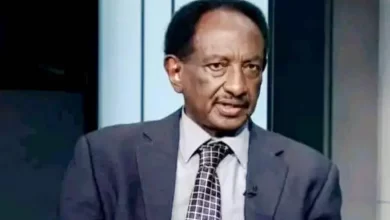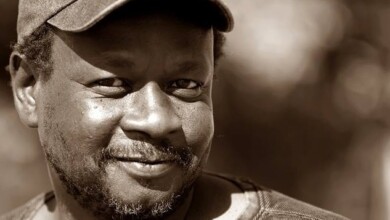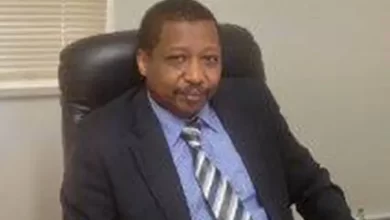A political activist or a seasoned advocate seeking solutions?
What was Tom Perriello doing in Geneva?

Abdel Hafeez Maryoud
Whilst the US Special Envoy for Sudan, Tom Perriello’s invitation to both parties to the conflict in Sudan to attend the Geneva platform in hopes of resolving the Sudanese crisis; was celebrated by many, the invitation was issued through the media before reaching those directly involved. Regardless of the international partners he mobilized, the Geneva platform’s course of events ultimately revealed, beyond any shadow of doubt, two shocking facts: The first of which is that, the United States of America doesn’t seek, in a fundamental manner, to extinguish the blaxes of war that have been raging in Sudan for a year and a half. The evidence for such claim -which is the second fact at the same time- is the dispatch of a political activist who has no experience, nor sufficient knowledge of the complexities of the situation in Sudan, to arrange for an actionable negotiation platform.
It is true that Tom Perriello, who holds a doctorate in law from Yale University, was a member of Congress and later served his country in the Lakes region of Africa, however, his political experience in the complexities of the Sudanese situation made him the most unsuccessful of all within the context of international mediation efforts since God created them. This indicates the short sightedness of the American vision regarding the Third World, as Perriello started from a stereotypical image that America always has the magic wand.
To be more specific: America, through its regional agents, can seize the required amount of complex issues, and right any wrongs by creating a vision in which it uses leverage, enticement, intimidation, and ultimately achieves its goal.
When it comes to the Sudanese crisis, the United States relied on its close agent: Egypt. And Egypt doesn’t read history books. This is because -throughout time- it has continued to deviate from the path in its dealings with Sudan’s issues. The only new development this time is being awarded an advisor status, after relying on Britain in a similar situation, during the Mahdist Revolution.
However, the focal point in both cases is the miscalculations of the scenario taking place in Sudan. The details of the historical scene are that when the Mahdist revolution began to threaten Khedivial Egypt, Egypt was under the European/British mandate. Britain provided it with advice that led to the appointment of General Gordon to resolve the Mahdist issue and combat the slave trade. That was a miscalculation on their part that ended with the death of General Gordon and the exit of Khedivial Egypt from Sudan.
Currently, Egypt is floundering -as expected- in estimating the conditions and events in Sudan. And because the United States regards Egypt as a close and intimate party to the file, it has awarded it an advisor status. That is exactly what paves the way for Tom Perriello, the American envoy, who has little knowledge of the complexities of the situation, to become a puppet in the hands of the Egyptian Assistant Foreign Minister, Hossam Issa. It is well known that Egypt adopts the positions of the Islamic Movement Army, led by Abdel Fattah Al-Burhan. Its Foreign Minister has made such statements repeatedly.
Thus, Perriello falling under the influence of Hossam Issa will reduce the chances of searching for solutions in Geneva to a search for the phoenix that Al-Ma’arri said about; (it is too grand to be hunted).
The partners arrived in Geneva, based on Perriello’s invitation, while the man hadn’t yet confirmed the presence of the two parties to the conflict. However, the arrival of the Rapid Support Forces delegation saved his platform, for the time being. The partners found themselves at a table with no agenda. This is because Perriello didn’t possess a clear vision or strategy.
When the Army of the Islamic Movement led by Al-Burhan refused to attend, the partners found it futile to wait, especially since Perriello left Geneva and flew -according on an Egyptian plot- to meet the Sudanese Army delegation in El Alamein, Egypt. Perriello failed to achieve even this part, as Egypt apologized to him, under the pretext of the Army delegation “breaching protocol,” so he returned to Geneva disappointed.
At the time, the Rapid Support delegation had seized the opportunity to reach understandings with international organizations regarding the delivery of humanitarian aid to Darfur and Kordofan, through the use of the Chadian “Adre” border crossing, which is controlled by the Rapid Support Forces, as well as the “El-Dabbah” crossing.
The media-savvy political activist, Tom Perriello, seemed keen on making statements on every little thing. But taking into account his efforts, starting with his meetings with heads of State related to the Sudanese file, to the UN meetings, it seems to be the equivalent of a big zero to the point that no statement was issued from the Geneva platform. Which means that Perriello’s political experience in the region, and the Sudanese crisis file, is nothing more than a broad movement of a political activist at the beginning of the road, chasing likes and follows.
The complexity of the issue in Sudan remains difficult to address, according to the confused Egyptian vision, which was unable to benefit from its historical mistakes. Believing that -by supporting the dreamy visions of the Islamists- it can stop the wheel of inevitable change in Sudan. That is because this war is the beginning of a radical uprooting of the old Sudan.





